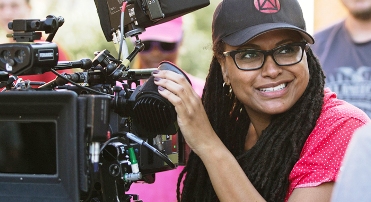
 Women film directors are becoming increasingly prominent after decades of being effectively shut out of the profession.
Women film directors are becoming increasingly prominent after decades of being effectively shut out of the profession.
For the majority of movie history, the directors have been mostly men. In Hollywood’s silent era, women played key roles as screenwriters and editors, and in some cases, as directors. But after the studio system was developed in the sound era, when big business finally saw that there was a lot of money to be made, men moved in and took over most of the positions, with women being discouraged in society at the time from being in the work force at all.
During the so-called classic era, from the 1930s through the mid-‘40s, there was literally only one woman director in Hollywood: Dorothy Arzner. And I invite you to look up Dorothy Arzner and watch some of her movies, which had the stamp of an individual style. In the late 1940s through the ‘50s, Ida Lupino, who’d started as an actress, made a series of important films that demonstrated a new kind of realism in American cinema. They’re both getting the attention they deserve, finally. But male dominance has still been the default condition in film, not just in the U.S., but worldwide.
Well, there’s been some progress since then. Agnès Varda in the French New Wave, followed by Chantal Akerman, Larisa Shepitko in Russia, Mai Zetterling in Sweden, Věra Chytilová in Czechoslovakia, Margarethe von Trotta in Germany, Lina Wertmüller in Italy, and Márta Mészáros in Hungary, among others, achieved breakthroughs as movie directors. We started to learn some of what we had been missing. Traditional films were largely about men, with women as romantic objects or otherwise in support of the male narrative. The point of view portrayed in most films failed to show women as their own protagonists, or convey the sensibility of women outside of their relationship to men. The emergence of female directors meant an enrichment of experience, a widening to include a fuller spectrum of human events, feelings, and ideas.
A few of the women directors working now that I admire are: Claire Denis, who has given us 35 years of excellence, in boldly experimental films like Beau Travail and White Material, interrogating the inner lives of men and women characters in provocative and challenging ways. Lucrecia Martel, the brilliant Argentinian director, whose films such as La Ciénaga, The Holy Girl, and Zama display a sophisticated multilayered style in stories dealing with family conflict, religious yearnings, class differences, and colonial history. Jane Campion from New Zealand and Gillian Armstrong from Australia. Kelly Reichardt, artist of real life, whose film Showing Up was one of my favorites from last year. Ava DuVernay, whose recent film Origin continues her career explorations of social justice. Debra Granik, Sarah Polley, Céline Sciamma, Greta Gerwig, Kathryn Bigelow, who was the first woman to win an Oscar for directing, and Chloe Zhao, who was the second.
These women are making great films.  It seems like a marvelous new era in cinema, and yet at the same time, it’s not enough. We need more women not only as directors but in every aspect of film production, not merely for the sake of inclusion, but because it revitalizes film. Progress has been too slow. The struggle continues. And in the meantime, take the trouble to find films made by women, and watch them.
It seems like a marvelous new era in cinema, and yet at the same time, it’s not enough. We need more women not only as directors but in every aspect of film production, not merely for the sake of inclusion, but because it revitalizes film. Progress has been too slow. The struggle continues. And in the meantime, take the trouble to find films made by women, and watch them.

